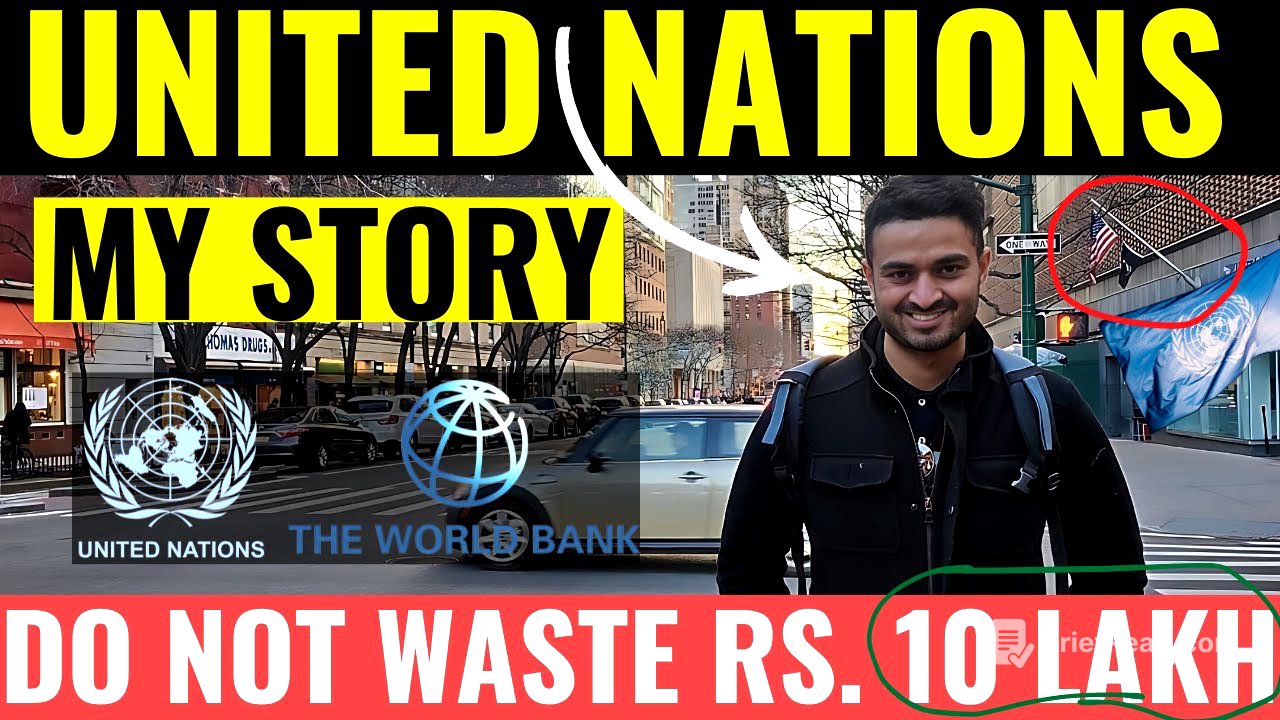TLDR;
This video is all about how to build a career in public policy, even if you haven't cleared the civil services exam. Naman gives some brutally honest advice, especially about Indian public policy schools. He emphasizes the importance of skills over certifications and suggests focusing on tech-related skills. He also talks about identifying the right organizations and reverse-engineering the skills they need.
- Avoid Indian public policy schools.
- Focus on learning practical skills like coding and data analytics.
- Look beyond traditional government jobs to tech companies.
Intro [0:00]
Naman starts by addressing the common question of how to join the UN or World Bank and build a career in public policy. He asks viewers to pay attention and take notes, as this video should be their go-to resource. He frames this as a Plan B, after exhausting attempts at civil services.
Step 1: Avoid Indian Public Policy Schools [0:57]
Naman strongly advises against enrolling in Indian public policy schools. He finds them useless, especially considering the high fees they charge. He questions the practical relevance of the curriculum, often taught by retired civil servants. He argues that policy-making power lies with Parliament and senior officials, so a 20-year-old learning policy from retirees isn't very useful. He stresses that certifications from these schools are worthless and that practical skills are what matter. These schools often leave graduates in secondary research positions due to a lack of skills.
Step 2: Identify Key Skills [3:58]
Naman highlights the skills needed to succeed in organizations like the UN, World Bank, and IMF. While fundamentals of policy, economics, finance, and communication are important, he emphasizes intertwining these with hard skills like coding, machine learning, and data analytics. He explains that technology is crucial in modern policy-making, and these organizations need people who can leverage technology in policy design, implementation, and analysis. Data-driven decision-making is key, and understanding global trends requires data analysis skills.
Step 3: Identify the Right Organizations [6:05]
Naman points out that the UN and World Bank aren't the only options for policy roles. Tech companies like Google (Alphabet), Meta, Microsoft, and Apple also hire for policy roles, especially at the intersection of technology and policy. Amazon, for example, hires experts in tech policy for regulatory compliance and data protection. He emphasizes that many companies are looking for talent with complementary skill sets.
Step 4: Reverse Engineer the Skills [6:59]
Naman advises reverse-engineering the skills valued in the market. This involves combining policy basics, business knowledge, and technology with hard and soft skills. He encourages viewers to apply for jobs and assures them that with the right skills, they will succeed. He suggests focusing on Plan A (presumably UPSC) but dedicating time to learning these skills for an incredible Plan B if needed. He believes that skills are more important than prestigious degrees in the capitalist world.
GGI Experience [7:43]
Naman shares his positive experience as a fellow at GGI (presumably Global Governance Initiative). He learned a lot about a new sector and appreciated the community and network. He highlights the continued education and exposure to topics ranging from tech ethics to liberal arts and policy consulting. He mentions the usefulness of "shinger" for case interview practice and "Trinity" for master classes by senior executives. He emphasizes the importance of understanding different perspectives in business and leadership.









